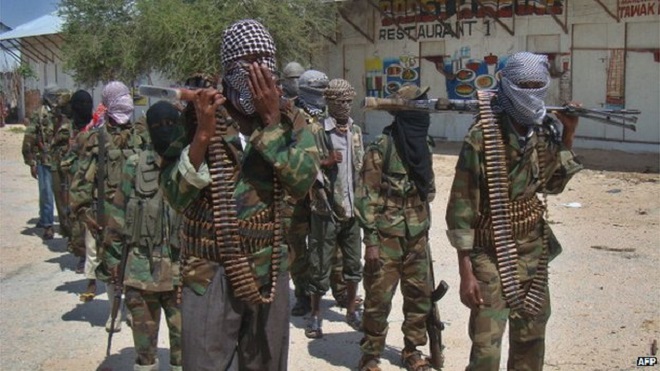 Somalia has criticised a move by a US bank to close accounts of money transfer companies, warning it could create a dangerous black market.
Somalia has criticised a move by a US bank to close accounts of money transfer companies, warning it could create a dangerous black market.
Merchants Bank of California handles about 80% of money transfers – remittances – from the US to Somalia, worth about $200m (£131m) annually.
But it announced on Thursday that it had to withdraw its services due to new money-laundering regulations
Regulators are concerned that money is being funnelled to extremists.
But the Somali government has warned that suspending legal transfer services may give rise to a new unregulated black market in cash transfers that could make it easier to channel money to militant groups.
It also expressed concern that the move would jeopardise stability in Somalia and the welfare of millions of Somalis who depend on financial assistance from abroad.
Total annual remittances to Somalia are estimated at $1.6bn (£1bn).
‘Lifeblood’ for Somalis
Nicholas Kay, the United Nations special representative for Somalia, said the remittances were a survival mechanism for Somali families.
Somali remittances are a lifeline. The United Nations estimates Somalis in the diaspora send home $1.6bn annually, significantly more than foreign aid.
According to a UN study, more than 40% of Somalis receive remittances, the bulk of which are used for basic needs, including food, clothes, medicine and education.
As stability returns to some parts of the country, remittances are increasingly used for investment. They are an essential part of rebuilding Somalia.
There is no functioning banking system in Somalia, so remittances are the only way people outside the country can support those at home. They play a crucial role during the frequent droughts as international aid agencies use them in cash for food programmes.
While it is understandable that banks fear potential fines by regulators, closing the accounts of Somali remittance companies risks driving underground the flow of cash to Somalia, exacerbating the problems of violent Islamism, piracy and the trafficking of arms, drugs and people.
“They are the lifeblood… for many, many Somalis, so from a humanitarian perspective it is clearly worrying if there is a complete stop in remittances,” said Mr Kay.
The Office of the Comptroller of the Currency (OCC), a federal regulator, told the US bank last year that it found its anti-money laundering procedures inadequate.
In the US, bank directors are responsible for ensuring all the funds they handle are used for legitimate purposes.
The OCC ordered the Merchants Bank to determine more exactly the destination of the funds it was wiring.

Regulators are worried money could end up with Islamist militants in Somalia
But in a letter to its clients last month, officials from the bank said they could not meet the regulators’ requirements and would have to close their money wiring service, US media reported.
Abdullahi Ismail, a Somali-born US citizen who lives in California, told the BBC that the local Somali community was baffled by the decision.
“Nobody knows what to do at this point but everybody’s just shocked by that news,” he said.
“I really don’t know if anybody sends money to the terrorists or launders money. Most Somalis send the remittances to their families, who are not doing anything wrong in Somalia.”
In a similar move in 2013, UK banking giant Barclays also sought to cut ties with Somalia by closing the account of leading Somali money-transfer operator Dahabshiil.
Barclays, which said the move was part of a crackdown on money laundering, eventually agreed to keep the account open so that Dahabshiil could find a replacement bank.































